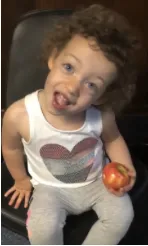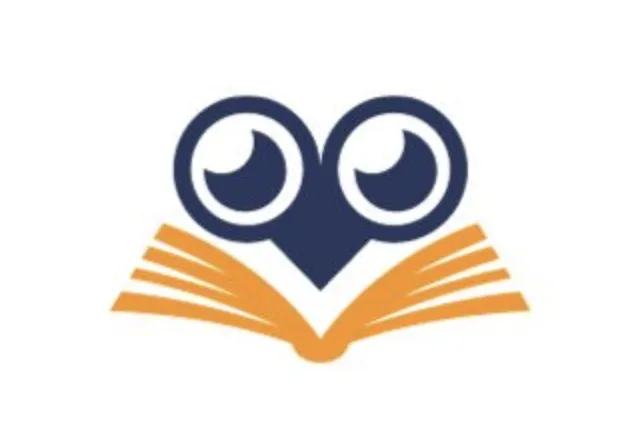Unlock Your Baby’s Full Potential — Start in the First 24 Months
Science-Based Strategies for Early Brain Development, Communication, and Lifelong Learning
Early Words, Strong Foundation
Coaching, Workshops, and Interactive Family Education to Help Your Baby Become
a Lifelong Learner
At BabyWisdom, parents are empowered with the knowledge and practical tools to support their baby’s brain development during the most critical window of opportunity—the first 24 months of life.
During this time, the baby’s brain is rapidly wiring itself in response to everyday experiences, interactions, and communication.
This intense period of connection-building prepares the brain for synapse pruning, which begins around age two, when frequently used connections are strengthened and unused ones are eliminated.
Our services are designed for parents of newborns of all developmental profiles, including neurotypical babies and those who may be neurodiverse or have special needs. While autism cannot typically be identified before 18 months—and is often not diagnosed until much later, sometimes not until early elementary school—the foundations for communication, learning, and cognitive development are being built from birth.
Because early development cannot wait, we focus on proactive, science-informed support from day one.
Both in-person and remote services are offered to meet families where they are.
Guided by our core values, BabyWisdom is committed to strengthening neural connections and nurturing the whole child through engaging, multi-sensory experiences and music-based approaches that foster early communication, cognitive development, and lifelong learning.
Your baby’s brain is being built right now—before pruning begins. Let us help you make the most of this once-in-a-lifetime window.
Explore our services and start supporting your baby’s development today.
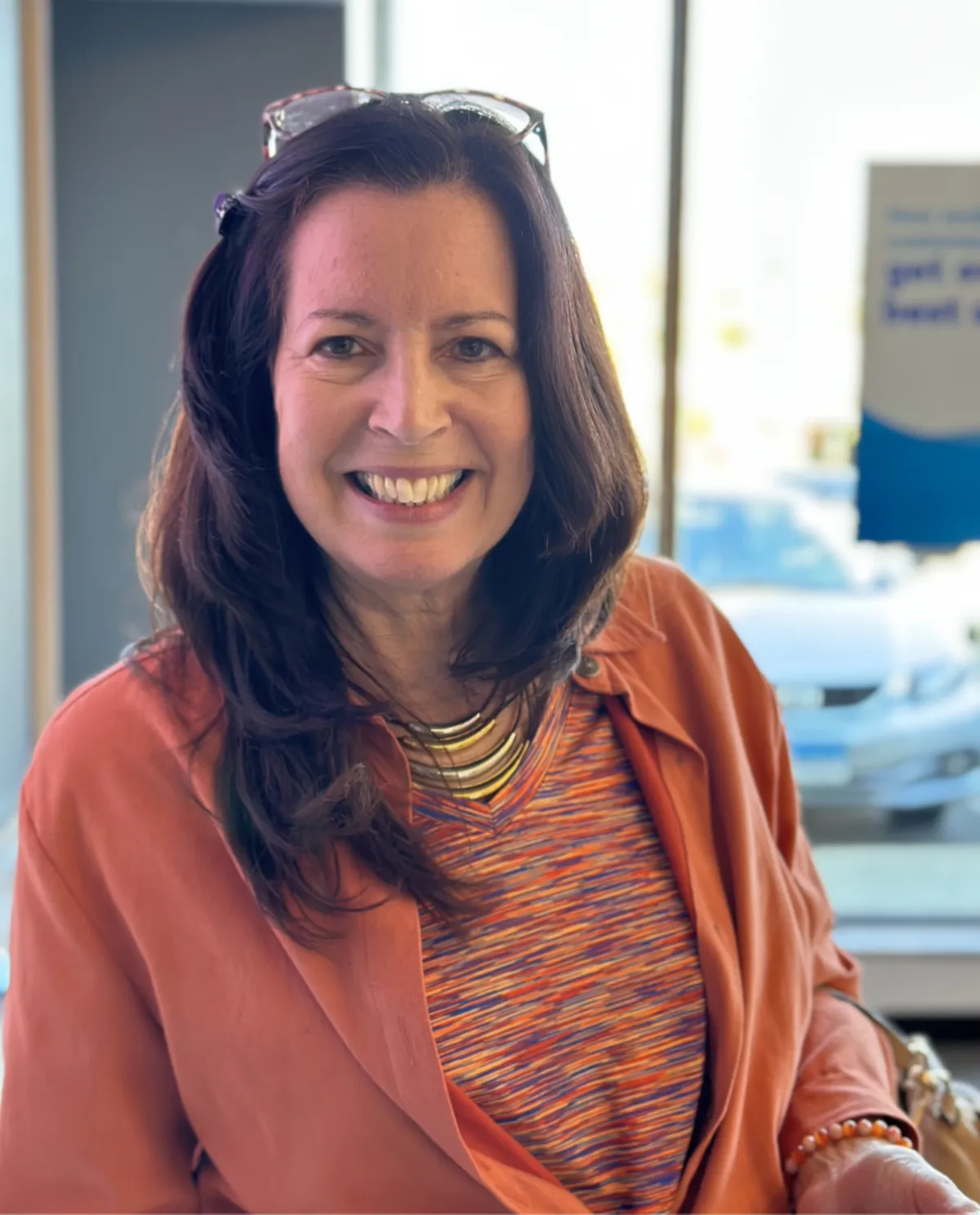
Linda Franklin-Biggs is a licensed, professional educator who combined her passion for children with her passion for music by becoming a public school music teacher in the elementary school system, retiring in June 2023 after 29 years.
Linda currently actively advocates for early learning and promotes early learning right from birth as a speaker, author, parent coach, and private music teacher.
Why Is working with our children from a young age
so important?
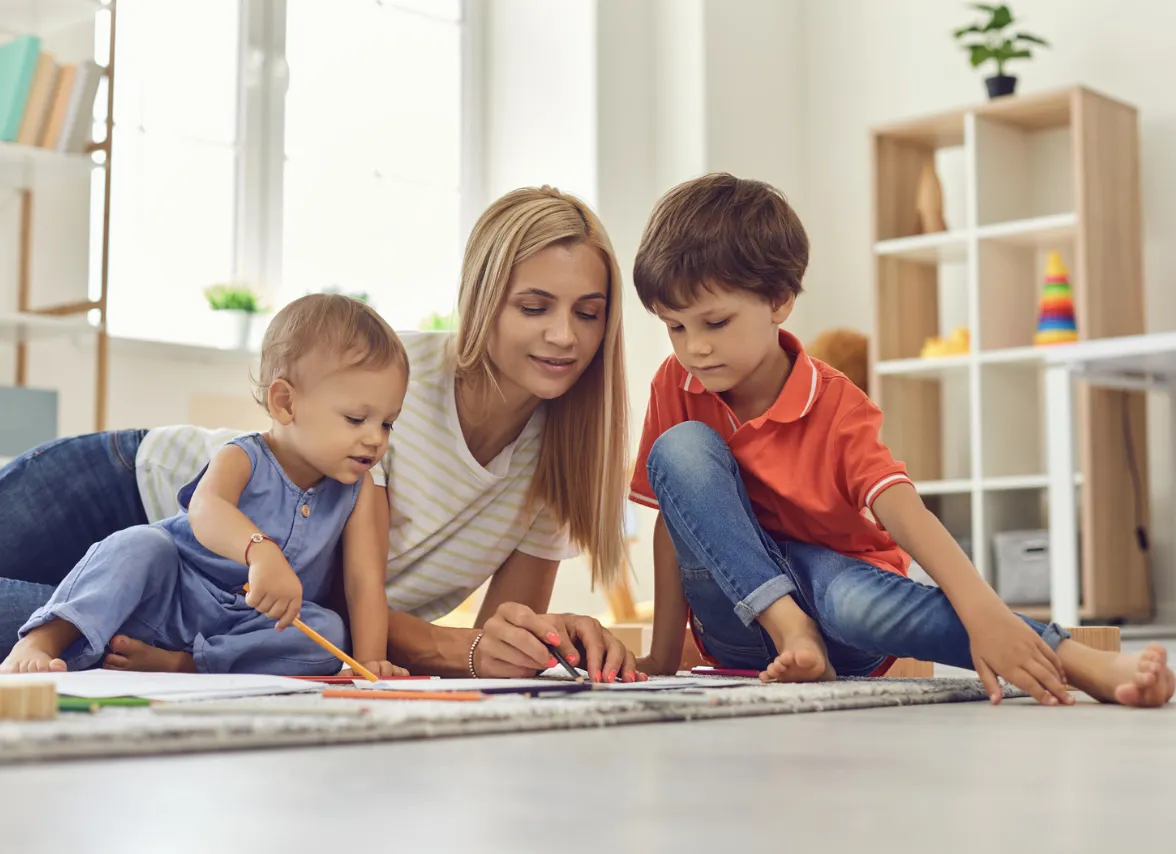
Our nation's education system is set up for children to begin formal learning at age five, or age three for children with special needs. There is a crucial window of opportunity that exists in the first 24 months of life. And parents need to know about it.
Encouraging Conversation
Making recordings of babies' conversations can often illuminate actual words being spoken in the playback that maybe weren't so obvious at the time the word or words were spoken, as in this video example.
In this YouTube video a 1-year-old and a 2-year-old are interacting and our ears heard babbling. You hear the father coaxing her to "open the window" of her playhouse, and you can hear her say in the recording, "I tried. I just tried!"
Nurture Lifelong Learning From Birth
85-90% of the brain is developed by age five.
Right from birth, children begin taking in information from their 5 senses.
Start making learning a part of your baby's daily routine, so they come to expect learning new things every day!
Passion for learning will increase.
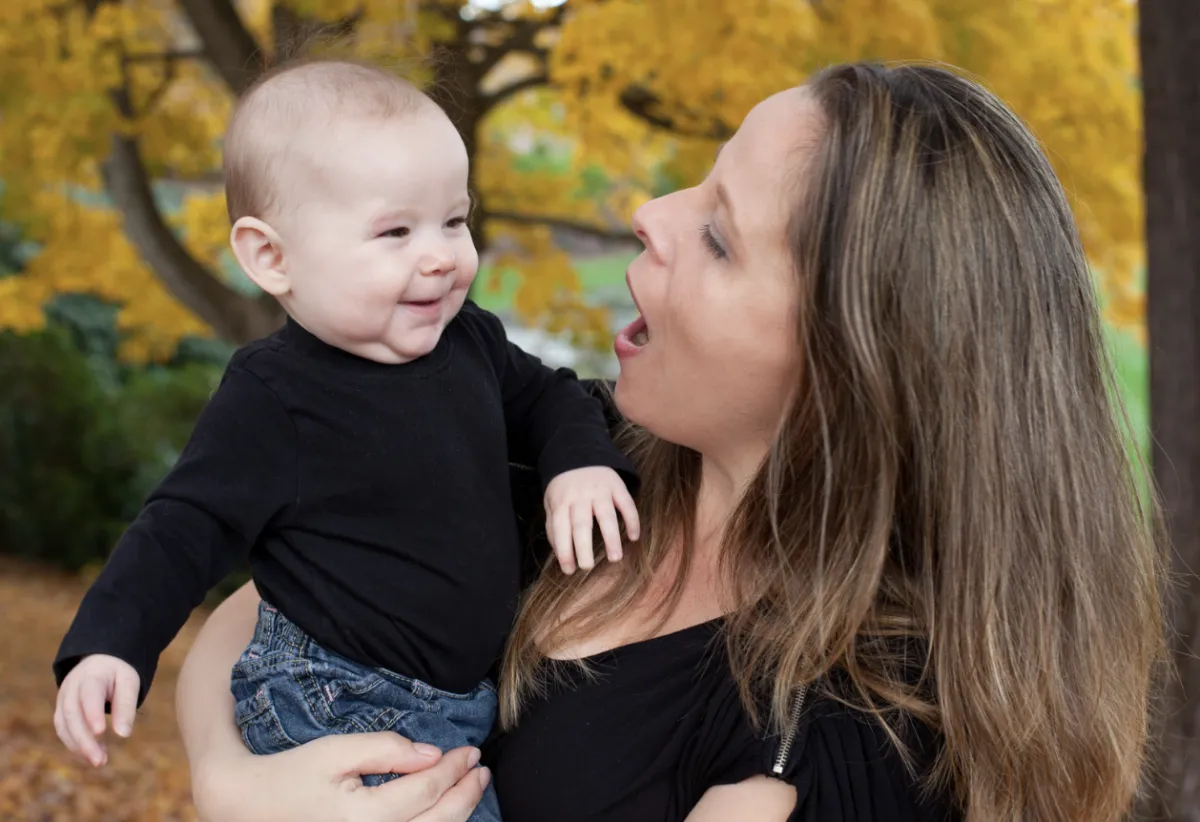
Great news!
They'll get used to learning & develop a passion for it before they're of school age!

It's never too early to give your child a head start... but it can be too late. Learn more.
"First 16 Months a Critical Period in Toddler’s Brain Development, Imaging Study Finds"
3 Ways to Help Your Baby Become a Lifelong Learner
1 | Turn everyday activities into learning opportunities!
2 | Involve as many of their senses as possible!
3 | Use eye contact and purposeful interactions!
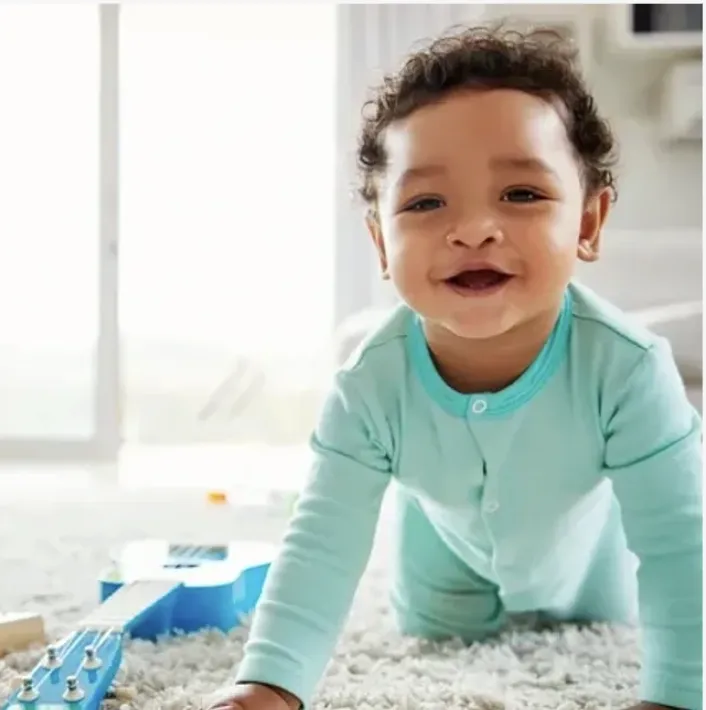
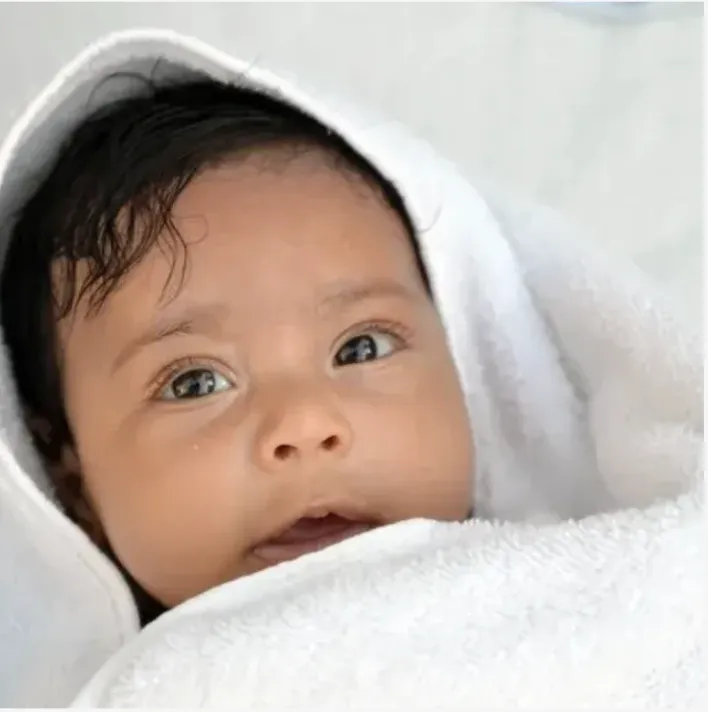
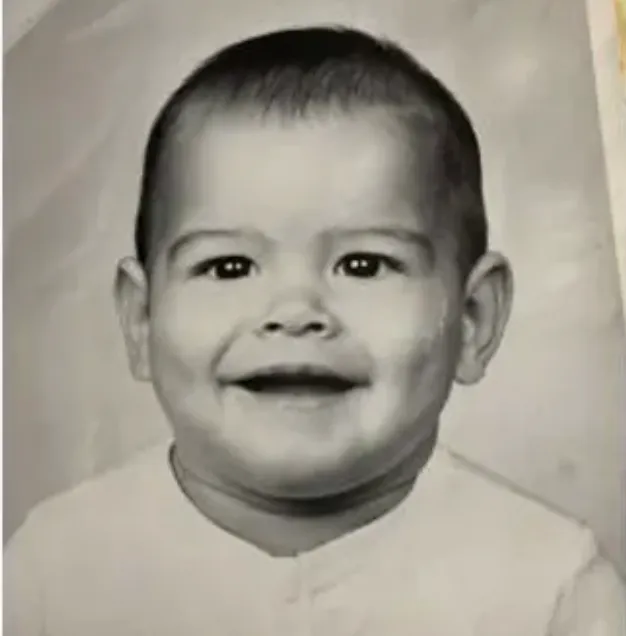
During diaper changes, say 'up' or 'down' when lifting/lowering to change the baby & use inflection of voice to match the up and down directions.
Name body parts when bathing and when getting dressed. Name the articles of clothing and steps involved.
Count bites of food at mealtime, and name the foods, the textures and actions. Name shapes, like the round plate or the rectangle napkin.
Add motion, singing & manipulatives to involve more of their senses and provide greater learning.
Let your baby explore different textures and name what they feel, soft, rough, smooth. Include wet, dry, cold, and warm tactile experiences.
Sing and act out many songs like, "Head, Shoulders, Knees, & Toes" to engage hearing, touch, movement & sight.
Exaggerate facial expressions, imitate baby's sounds and gestures, pause and take turns.
During play, get down on your baby's level, follow your baby's lead & respond to what captures their attention.
In all activities, make eye contact and talk through what you're doing, what's happening and what you're seeing.
BONUS TIP!
Music, music, music!
Expose your baby to quality music as much as possible. If you have instruments in the home, like a piano, flute or stringed instruments, play for your baby or let the baby explore the sounds!
Sing the notes if you can! Encourage the baby to echo you! In addition, check out all the free concerts nearby!
Check local towns' summer schedules for free concerts on the green. Check your local paper for free musical events, especially around the holidays, at local schools and churches.
Find a really good classical music station on your streaming device and play the music very quietly at nap time in a quiet and darkened room that is conducive to sleeping.
Many symphonies offer free concerts for children and families; just Google "free concerts near me"!
Not only is it a learning experience for the baby, but it creates a fun memory for the whole family!
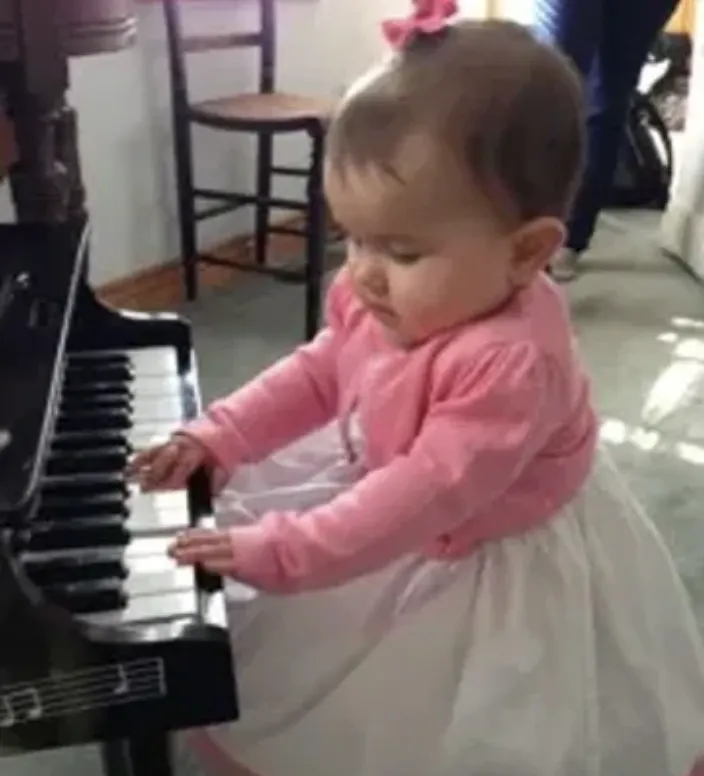
Success Stories... Yours Can Be One of Them
Ava was born 2 years ago with Down Syndrome. She was also medically fragile and spent the first 4 months of her life in the hospital. When she was finally discharged, she was still eating through a feeding tube. The diagnosis of DS alone puts a child behind their peers by the time they start kindergarten at age 5 and spending 4 months in the hospital puts them even further behind.
I was introduced to Sarah, Ava’s mother, shortly after Ava was born. I met with her & her partner on Zoom and began sharing with them how to work with their new baby to develop strong neural connections, develop communication skills and understand some of the unique challenges of DS. I have written my master’s degree thesis on the effects of music on preschool children with Down Syndrome and know quite a bit about it, having taught preschool children with DS for many years as well.
Babies with DS typically have proportionately smaller ear canals that often fill with fluid. This fluid causes your voice to sound like you are talking under water to them & it’s harder for them to hear clearly.
I shared science-based music techniques that help the baby to hear better when fluid is present. I provided activities, music links, & lessons for them to do with Ava & encouraged them to do these things daily and repeatedly.

Ava turned 2 last November and when I asked how Ava was doing, Sarah responded, “Ava is doing amazing….Thanks for all the info about music. She dances to the beat and music without prompting. I’ve been singing her to sleep since she was a newborn…. I think being able to communicate is helping a lot for us to not get to (the) tantrum stage.”
This is four month old Remi, held by his mother, with his dad playing the notes to the alphabet song while I sang and videotaped. This was taken during a first meeting and initial assessment.
When I started to sing the ABC’s, Remi jumped up and down in his mother’s lap with his eyes open wide, excitedly smiling, as if to tell me, “I know this song!” So I began to engage in a conversation with Remi, looking him directly in the eyes, asking him, “Do you know this song? Does your mother sing this to you?”
As he began to babble, his mother responded, “Yes, he knows it, I sing it to him all the time.” He stopped babbling to let his mother answer and turned away. A baby will disengage in communication when you take over for them.
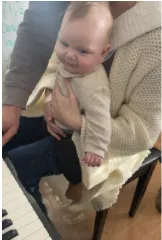
Don’t speak for your baby, but acknowledge what you know they are trying to communicate and encourage their speech and language. Encouragement is a great tool in developing early communication skills.
Children develop their receptive language long before they develop their expressive language and this is a great example of that. Instead of answering for the child, let the child babble and begin recording their babbling. You’ll be surprised when you play it back that you might hear an actual word amongst the babbling!

The same exact assessment done with this little 8 month old guy yielded no reaction whatsoever. When I said to the baby, “You don’t know this song, do you?”
The father replied, “A lot of things you talked about today, I hadn’t been doing, but I’m going to start doing them now!”
A short little activity like this can reveal to parents how much their child is actually learning and how their baby can express understanding something or not understanding something without being able to actually talk yet.
This is Fran, singing the alphabet and fully conversant at 27 months. I had met with her parents and spoken with them before Fran was born and explained how music techniques could be used to develop the speaking voice and early communication with babies.
I talked about the window of opportunity that exists in the first 24 months and how to develop strong neural connections in their infant. This picture comes from the video they sent of her singing the alphabet and having a short conversation with her dad.
